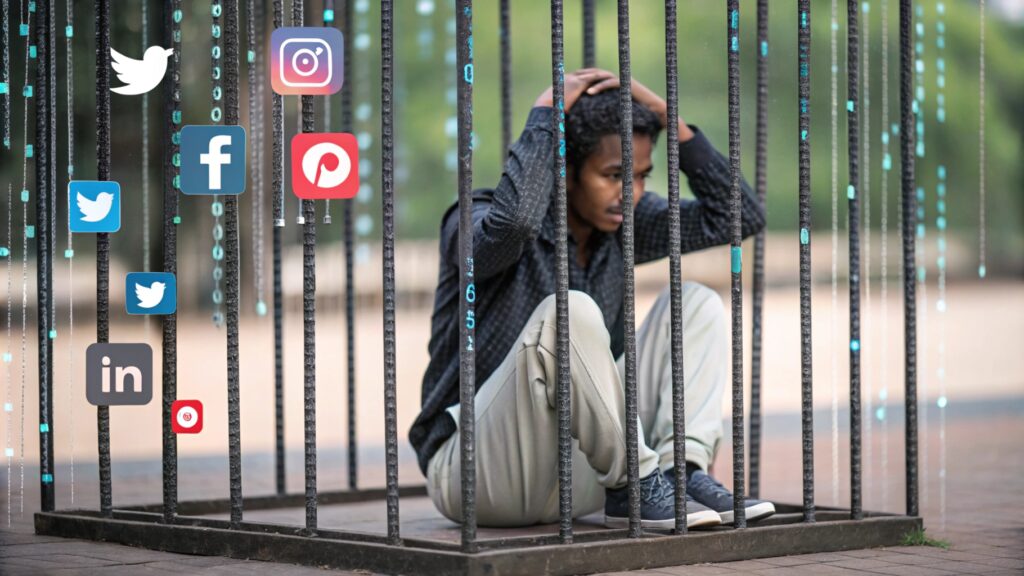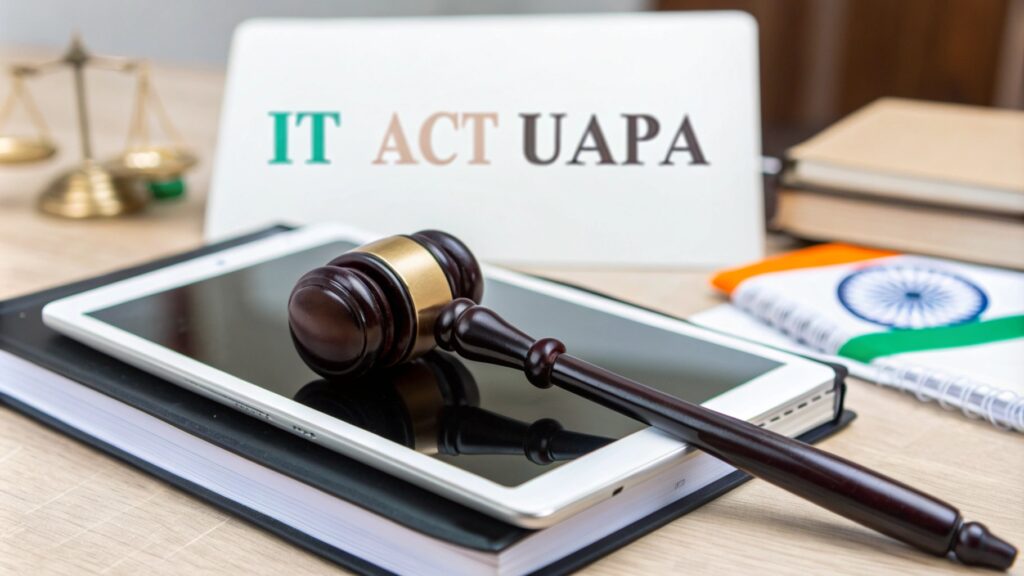Introduction

Digital arrest in India is a growing concern that raises critical questions about the limits of online freedom. With the increasing use of digital platforms, individuals in India face legal consequences for their online expressions—often in ways that affect their privacy, free speech, and even their careers. But how did we arrive at this point? And what does it mean for the future of digital freedom?
As the internet becomes a space for both empowerment and restriction, understanding the implications of digital arrest is more important than ever. In this blog, we’ll unravel the hidden consequences of online restrictions, exploring how digital laws, surveillance, and censorship are shaping the internet in India today.
Understanding Digital Arrest in the Indian Context
Have you ever wondered how your online activities could land you in trouble? In India, the concept of digital arrest—detaining individuals for their online expressions—has grown significantly. While this might seem like a distant concern, it affects everyone who uses the internet to share opinions, post updates, or simply engage in conversations.

What Exactly Is Digital Arrest?
At its core, digital arrest refers to actions taken against individuals based on their online behavior. This can include:
- Posting content deemed offensive or controversial.
- Sharing misinformation, whether intentional or not.
- Violating laws tied to cybercrime or digital communication.
While these measures are often justified under the pretext of national security or maintaining public order, they raise concerns about freedom of speech and privacy.
The Legal Framework: How Is It Governed in India?
India’s digital landscape is regulated by a complex network of laws, including:
- The Information Technology Act, 2000 (IT Act): Addresses online misconduct but has been criticized for vague language that allows for broad interpretation.
- Section 124A of the Indian Penal Code (IPC): Deals with sedition and has been used to target digital dissenters.
- The Unlawful Activities (Prevention) Act (UAPA): Applied to online content considered a threat to national integrity.
These laws, while essential for combating cybercrime, often create a chilling effect on free speech.
Why Does It Matter to You?
If you think only activists or high-profile figures are at risk, think again. Ordinary citizens, influencers, and even students have faced repercussions for seemingly harmless posts. Here’s why it matters:
![]()
- Erosion of Online Freedom: The fear of arrest stifles creativity and open dialogue.
- Privacy Risks: Increased surveillance could expose personal data to misuse.
- Global Implications: Restrictive measures could impact India’s reputation as a democratic, tech-driven nation.
As we continue to navigate this digital age, it’s crucial to understand the fine print of these laws and their implications. After all, protecting online freedom is not just about laws—it’s about safeguarding the very fabric of our democratic values.
Let’s uncover more layers of this issue in the next section.
Conclusion
As we step further into an interconnected digital era, the question remains: how do we strike the right balance between freedom and responsibility online? The reality of digital arrest in India reveals a complex web of legal, social, and ethical challenges that demand our attention.
For each of us, the internet is more than just a tool—it’s a space where ideas are shared, relationships are built, and identities are expressed. But when this space becomes constrained by fear or uncertainty, it’s not just our freedom of speech that’s at stake; it’s our ability to innovate, connect, and thrive as a society.
![]()
What Can You Do?
- Stay Informed: Understanding the laws that govern online activity is your first line of defense.
- Use Your Voice Wisely: Engage in meaningful conversations and advocate for fair digital policies.
- Support Digital Rights Movements: Align with organizations working to protect online freedom and privacy.
By fostering a culture of awareness and responsibility, we can ensure the internet remains a safe, inclusive, and empowering space for everyone. The journey to digital freedom isn’t just a policy issue—it’s a collective effort, and your role matters.
So, as you log off today, ask yourself: are you contributing to a future where the internet is a place of opportunity, or one overshadowed by fear? The answer to that question will shape not just your digital presence but the very fabric of India’s online freedom.
Let’s take the first step—together.
You May Also Like:
Wellness Gaming: The Fusion of Health and Entertainment
E-Learning Benefits, Types, and Trends You Can’t Miss
Gmail Tips: Translate Emails on Your Mobile Without Needing Another App